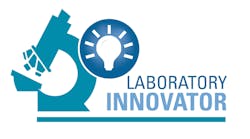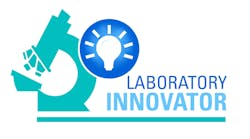Thirty years is a long time, so I have several favorites to share. From the beginning, I was tasked with setting up the shipping process. I had to work with our software developers to help define a process that would pull each of the unique proficiency products that a laboratory ordered into a kit and resolve how to make an assembly process for many thousands of those kits happen over a two-day period. As a medical technologist, it was embedded in me to follow quality processes and ensure the accuracy of this process! It was interesting and challenging to apply that skill set to a different scenario.
I also had the opportunity to develop a proficiency testing program for laboratories in the food industry. Developing proficiency testing for an adjacent industry gave me an opportunity to learn about food microbiology and gain an appreciation of the important role proficiency testing plays in quality improvement across all laboratory sectors.
Frankly, the overall running of a proficiency testing program is one big, continuous, favorite project! From developing new products for the API portfolio to sourcing material to figuring out system logistics, it’s all a wonderful challenge.
If a laboratory receives an unsatisfactory proficiency testing result, what steps should it take to determine the cause of the problem?
The API “Corrective Action Checklist” is a great place to start. A laboratory follows the checklist to determine the possible cause of the problem. It begins with a review of the proficiency testing results to rule out a clerical or transcription error and continues with a retrospective look at the testing method used, units reported, and rechecking the sample identification. To determine if specimen handling errors were involved, the checklist suggests examining how samples were received and managed. Other items covered in the checklist include a review of quality control data, maintenance logs, instruments, and reagents, in addition to calibration verification.
Remember, it’s important to include testing personnel and the laboratory’s medical director in this review and to document fully the findings.
Have laboratory automation and new technologies posed any challenges to proficiency testing? Any advice for overcoming these challenges?
Sure, but in a positive way. As laboratory information systems developed and laboratories used those systems to report out their patient results, we knew we needed to adapt. Proficiency testing processes needed to align better with a patient testing scenario. For us, it led to the birth of API DataDirect, where a laboratory’s LIS will run a report and create a data file, which is then uploaded to the API website. No more manual entry, and clerical errors are eliminated — a win for technology and the laboratory.
I find that you always need to adapt. From the beginning of my time at API, we saw the need to innovate by offering liquid chemistry samples and blood cell photographs. Now we have molecular technologies and other advancements that require new solutions. I find it exciting and refreshing to innovate.
Could you describe the characteristics of the most successful labs in your proficiency testing program?
Consistently successful proficiency testing exposes good laboratory practices — a goal for all laboratories to pursue! Proficiency testing demonstrates the accuracy and reliability of a laboratory.
The most successful laboratories are educated about CLIA requirements and understand the principles behind them. They invest time in personnel training and competency and are disciplined about instrument maintenance, controls, and laboratory practices like proper reagent storage and sample handling. Good laboratories thoroughly document their policies and procedures and keep them up to date.
The laboratories that get the most value out of proficiency testing are engaged in the process and use it as one of many laboratory quality tools. We enjoy helping laboratories see the value of proficiency testing not just as a requirement, but as an important part of their overall quality practices.
Are there any new API projects in development that you can share with MLO readers?
API continually makes adjustments and improvements to its proficiency testing products and services. We often reach out to laboratories to ask what they would like to see and what would be useful to them. From improving the API DataDashboard (where proficiency testing performance may be reviewed at-a-glance) to updating our website, new projects are always at the forefront.






